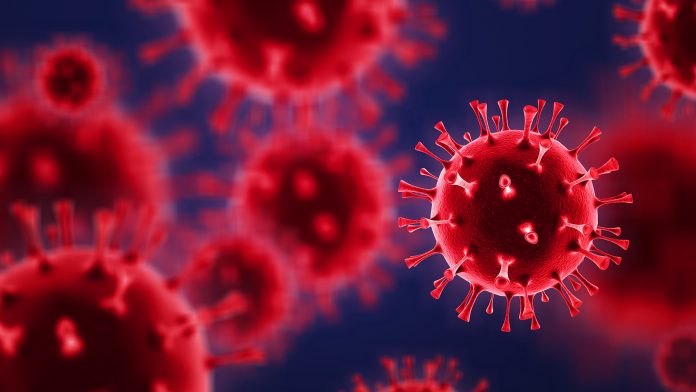Researchers from the University of Surrey have developed a new electronic diagnostic test for bacteria and viruses.
Led by Professor Johnjoe McFadden, the researchers developed an electronic diagnostic test called ‘Electro-chemical LAMP’ (eLAMP). The new test is affordable, rapid, and sensitive.
eLAMP matches the sensitivity of lab-based PCR tests but can be performed at home when connected to a smartphone.
A study on the new test has been published in the journal iScience.
How does the new diagnostic test work?
The output of a PCR-like test, called LAMP, is converted by eLAMP into a simple electric current. The diagnostic test device is compact, and has the potential to be minaturised into a simple memory-stick-sized device that could be operated by anyone with an app.
By making the device small, the test can be performed at home. The result can then be instantly sent to health services to monitor the spread of infection, providing the patient with immediate advice.
Professor Johnjoe McFadden, corresponding author of the study and Professor of Molecular Genetics at the University of Surrey, said: “A key lesson we took from the COVID-19 pandemic is how crucial rapid, effective and cheap diagnostic tools that can be used at home are to monitoring and containing infectious diseases.
“Our test meets these criteria and can detect lower amounts of the SARS-CoV-2 virus compared to other home-based tests.
“We are looking for commercial partners to further develop the test and take it to market.”
Benefits of the test
The team tested human blood, saliva, and swabs from the nose and throat, and found that their test had a 93.33% accuracy rate.
They found that the test performs well at room temperature, with the ability to bring up results in 45 minutes.
It is important to find better ways to test for the coronavirus
Since SARS-CoV-2 was announced as a global pandemic in 2020 by the World Health Organization, nearly six million people have died, and around two million cases are reported worldwide every day.
Generally, the virus affects people’s lungs. Symptoms include coughing, fever, and trouble breathing. In severe cases, it can lead to heart problems and organ failure.
Dr Khushboo Borah Slater, co-author of the study from the University of Surrey, said: “SARS-CoV-2 is likely to be around for a long time and, unfortunately, new difficult viruses are likely to emerge.
“It’s crucial to keep working on better ways to test for the coronavirus, and our goal is to further develop our diagnostic test so that it can be easily used everywhere to help control the disease and prevent future outbreaks.”









